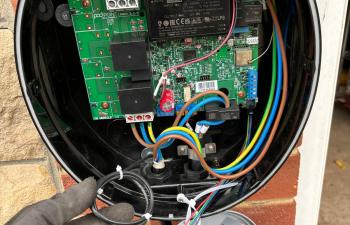Being a landlord in Darlington comes with many responsibilities in maintaining your property to ensure that its fit for tenants to live in. Landlords have a legal duty to keep their properties safe and fit for human habitation as per the Homes (Fitness Human Habitation) Act of 2018. This legislation exists to help ensure that privately rented properties are safe to occupy throughout the tenancy.
Legislation has now been in place since April 2021 which applies to all private rental properties states that all landlords must get regular electrical safety inspections carried out by a qualified electrician. An Electrical Inspection Condition report or EICR must be held for the tenanted property with new inspections mandatory every 5 years.
A copy of the EICR must be supplied to the tenant at the beginning of a new tenancy and if the inspection is carried out during the tenancy the most up to date copy must be provided within 28 days. Local authorities also have the power to request sight of documentation and if this is requested the landlord must provide a copy of the report for inspection within 7 days, failure to do so can result in fines for the landlord.
The purpose of the EICR is to check if the electrical installation is safe and in a suitable condition for continued use. This involves testing various elements of the system including
- All light fittings
- All plug sockets
- All internal and external wiring
- The property’s fuse box
- Any electrical equipment that is permanently connected, such as storage heaters, power showers, or extractor fans.
Mains electric is switched off to allow different elements of inspection to be completed which will highlight faults with broken equipment, incorrect wiring and dead and live testing.
The electrician in Darlington will then provide you with the results of the inspection and certificate providing the installation is deemed safe.
In the event of fault being detected the report will detail the fault and its severity. Anything coded C1 or C2 will need to be rectified as a matter of urgency. If your tenanted property fails an EICR inspection you will have 28 days to carry out and complete remedial action to ensure the safety of your tenants.
A C3 fault code may still be present on a satisfactory inspection report, whilst not critical it's important to be aware of the issues as they will need addressing in the future.
It's also recommended that when supplying white goods as part of a tenancy regular Portable Applicance Testing more commonly known as PAT testing is carried out to ensure the safety of the appliances. This will ensure that the devices comply with UK Electrical Safety standards. A portable appliance can be anything with a plug attached and it's important that smaller electrical items such as toasters and kettles are not overlooked.
Private landlords must comply with the regulations when it comes to electrical safety certificates although there are some cases in which this doesn’t apply.
Schedule 1 of the Electrical Safety Regulations details a number of exceptions where landlords may not need to provide an Electrical Safety certificate.
These include:
- Social housing
- Long leases of 7 years or more
- Student halls of residence
- Hostels and refuges
- Lodgers
- Care homes
- Hospitals, hospices, and other accommodations associated with providing care.






